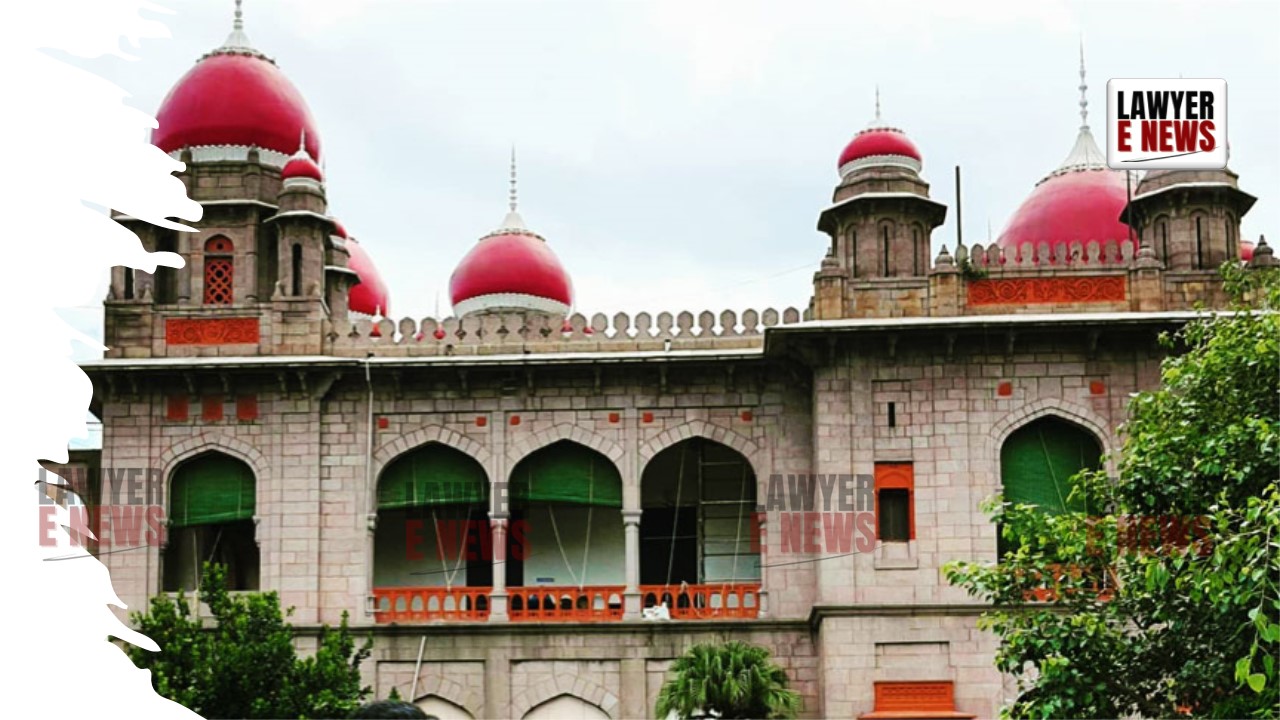-
by Admin
18 February 2026 4:37 AM



“When the High Court appoints the Arbitrator under Section 11(6), it alone retains the exclusive jurisdiction to extend or terminate the Arbitrator’s mandate under Section 29A.” - High Court for the State of Telangana delivered a significant ruling on the scope of jurisdiction under the Arbitration and Conciliation Act, 1996. A Division Bench of Justice Moushumi Bhattacharya and Justice B.R. Madhusudhan Rao held that only the High Court that appointed the arbitrator under Section 11(6) of the Act can extend the arbitrator’s mandate under Section 29A. The Court found that the Commercial Court at Hyderabad had no jurisdiction to pass the impugned order extending the mandate, which had already expired on 23.03.2025, making the issue academic but legally important.
“The Act contemplates unifying the procedures by requiring all subsequent applications for extension, termination, or substitution to be made only to the High Court where the High Court was the appointing authority.”
The petitioner challenged an order passed by the Commercial Court at Hyderabad dated 5.2.2025, which had extended the mandate of an arbitrator for six months in a domestic arbitration. The arbitration proceedings were initiated under the 1996 Act, and the arbitrator had been appointed by the Telangana High Court on an earlier application under Section 11(6).
Despite the expiration of the arbitrator’s mandate on 23.03.2025, the Commercial Court entertained and allowed a petition under Section 29A for extension. The petitioner challenged the legality of this order, contending that the Commercial Court had no jurisdiction to entertain the application since the arbitrator was appointed by the High Court.
The Bench delved into the definitions and scheme of the Arbitration Act, particularly Section 2(1)(e) and Section 29A, stating: “Section 2(1)(e)(i) clearly defines ‘Court’ to include the Principal Civil Court of original jurisdiction and the High Court in its original civil jurisdiction, but does not include any court inferior to such principal civil court.”
On the question of which court has jurisdiction for extending an arbitrator’s mandate, the Court emphasized: “While Section 11(6) confers exclusive powers on the High Court for appointment of an arbitrator, Section 2(1)(e)(i) operates in tandem and sustains the hierarchy whereby the same High Court retains exclusive power to extend the mandate under Section 29A(4).”
The Court rejected the respondent’s reliance on Section 42, explaining: “Section 42 applies to all disputes concerning arbitration agreements after proceedings commence — it does not override the specific jurisdictional designations under Sections 11 and 29A.”
The Bench warned against fragmenting jurisdiction: “Allowing inferior courts to extend mandates after High Court appointments would lead to procedural incoherence and multiplicity of forums, which the Act seeks to avoid.”
The Court drew strength from precedent, particularly the Division Bench ruling of the Bombay High Court in Sheela Chowgule v. Vijay V. Chowgule (W.P. No.88 of 2024), which held:
“Where an arbitrator is appointed by the High Court under Section 11(6), an application for extension of mandate must also lie before the High Court.”
It also cited aligned judgments from the Delhi High Court (Ovington Finance Pvt. Ltd. v. Bindiya Nagar) and the Calcutta High Court (Amit Kumar Gupta v. Dipak Prasad), reinforcing the national consensus on preserving jurisdictional hierarchy under the Act.
Although the matter had become academic by the time of hearing — since the arbitrator’s mandate had already expired — the Court chose to address the jurisdictional issue due to its legal significance. It concluded:
“The extension of the Arbitrator’s mandate in the present case was erroneously permitted by the Commercial Court… the High Court alone retained that power by virtue of having appointed the arbitrator under Section 11(6).”
Accordingly, the Civil Revision Petition was allowed, and the impugned order of the Commercial Court was set aside.
Date of Decision: 10 April 2025
